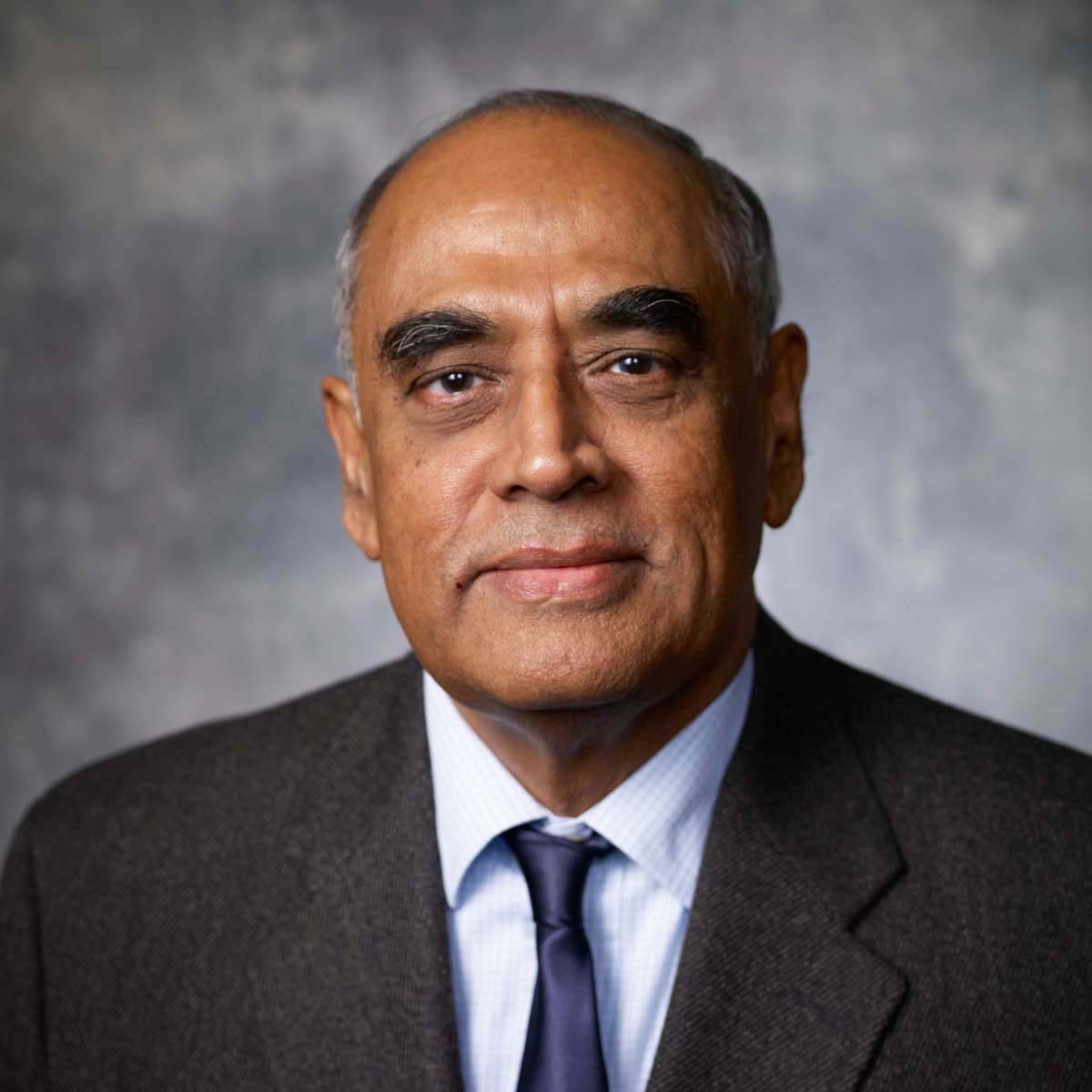Dr. R. Chandrasekaran
- Professor of Computer Science
- Ashbel Smith Professor

The University of Texas at Dallas supports the Ashbel Smith Professorship. Dr. Ashbel Smith was the first president of the UT System Board of Regents. He had a long and distinguished career in medicine, education and public service. During his term on the Board of Regents, Smith was dedicated to recruiting the best faculty members available and to developing a curriculum befitting a “university of the first class.” Smith became known as both the “father of Texas medicine” and the “father of The University of Texas.”
“My view of research is solving very difficult problems using entirely new ideas. If my students and or I contribute ideas that are intellectually strong – those make me very proud because they last for a long time.”
Dr. R. Chandrasekaran knew as a teenager that he wanted to teach.
“When I had an exceptionally good teacher, I wondered why every teacher couldn’t be as passionate and engaging about a subject,” he said. “I wanted to become an exception for generations behind me. “I strongly believe that those who do not have a passion for teaching have no place in the university.” After earning his bachelor’s degree with honors in mechanical engineering from the Indian Institute of Technology in Bombay, Chandrasekaran earned his PhD in operations research from the University of California, Berkeley.
He specializes in mathematical modeling for making decisions. Some of his industry work matched National Football League players with teams, scheduled football games for the league and analyzed the most profitable locations to build a grocery store. He also designed the most cost-effective satellite networks for telecommunications companies.
Chandrasekaran said his time working or consulting for industry offered real-world experience to help him be a better instructor.
He taught at the University of California, Berkeley, and Case Western Reserve University before joining the UT Dallas faculty in 1975. He started in the management school and joined the engineering school in 1999. He currently teaches in both schools.
“Although the areas of applications are different, the methods used to solve them are basically the same, and I specialize in developing methods,” he said.
Some of his students have now retired from faculty positions.
“My original answer to the question, ‘When will you retire?’ used to be, “When I stopped contributing,’” he said. “Now I say, ‘I will retire at some point, because my body may want to.’” But even then, he plans to teach advanced classes, which generally have small enrollment, on Fridays or Saturdays.
“That way my brain will keep active and I will raise the levels of students who are doing research,” he said.